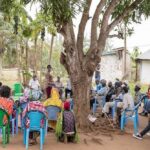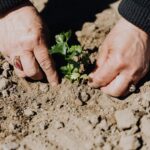Educating local communities about sustainable tourism and regenerative practices is essential for the development of a sustainable and responsible tourism industry. By educating locals about the impacts of tourism on the land and territory, and the ways in which they can mitigate these impacts, we can empower local communities to take a leadership role in the sustainable development of their destinations.

One key aspect of educating locals about sustainable tourism is teaching them about regenerative practices. Regenerative tourism is a holistic approach that goes beyond simply reducing negative impacts and aims to actively improve the social and ecological well-being of a destination. This can include practices such as regenerative agriculture, permaculture, and community-based tourism.
When local communities are educated about these practices and see the benefits they can bring to their community, they are more likely to adopt and promote them. This can lead to the development of more sustainable and responsible tourism plans and policies that prioritize the well-being of the local community and the environment.
Additionally, educating locals about sustainable tourism can also lead to the creation of new job opportunities in the tourism industry. For example, locals can be trained as tour guides, sustainable travel consultants, or regenerative agriculture experts. This not only helps to diversify the local economy but also promotes sustainable practices within the tourism industry.
In summary, educating local communities about sustainable tourism and regenerative practices is essential for the development of a sustainable and responsible tourism industry. By empowering locals to take a leadership role in the sustainable development of their destinations, we can create new job opportunities, promote regenerative practices and improve the social and ecological well-being of the destination.






